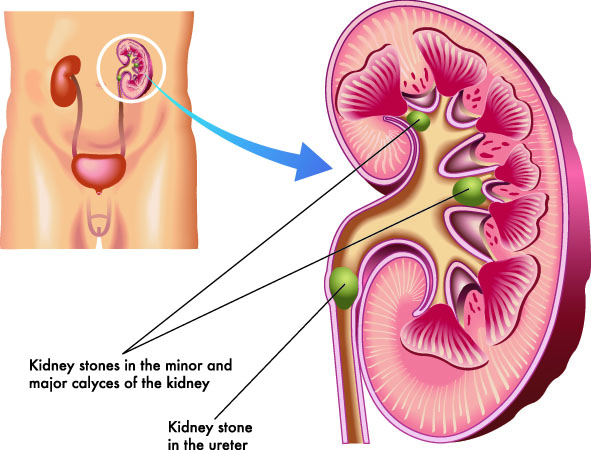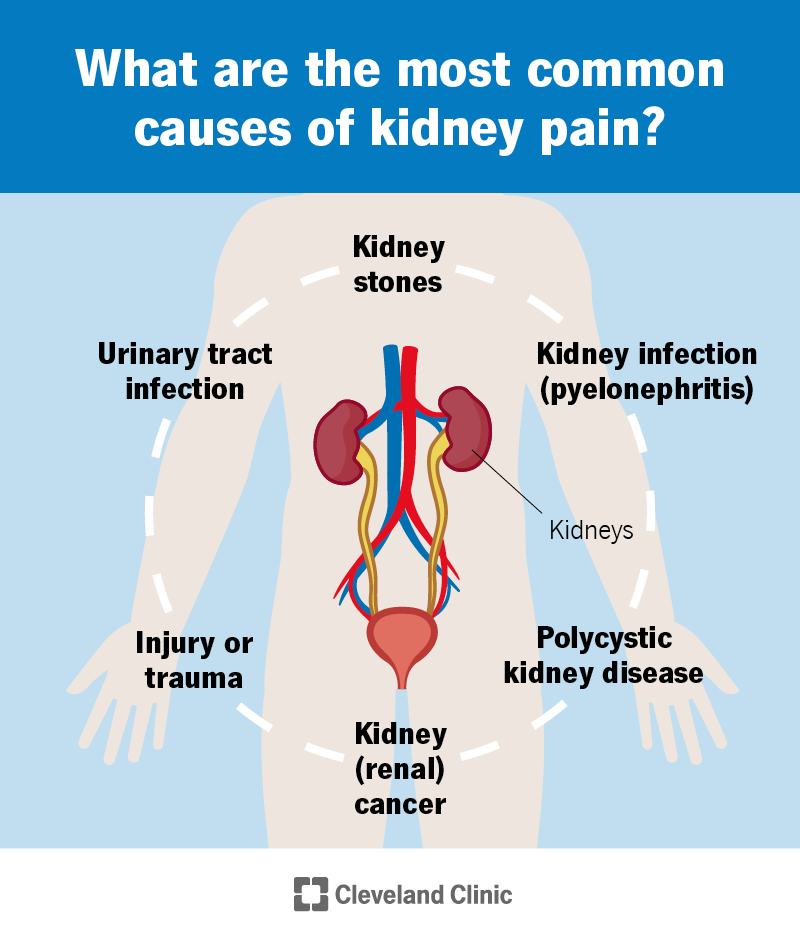Discovering Kidney Stones vs UTI: A Clear Review of Reasons, Signs, and Treatments
Discovering Kidney Stones vs UTI: A Clear Review of Reasons, Signs, and Treatments
Blog Article
Checking Out the Symptoms and Causes of Kidney Stones in Contrast to Urinary System Tract Infections: An In-depth Guide
The expedition of kidney rocks and urinary system system infections (UTIs) reveals a complicated interplay of signs and symptoms and underlying reasons that necessitate careful assessment. What are the essential distinctions in their signs and symptoms, and just how might these inform treatment methods?
Review of Kidney Stones
Kidney stones, likewise referred to as kidney calculi, type when specific compounds in the pee crystallize and accumulation, bring about the growth of tough down payments within the kidneys. These rocks can differ in size, ranging from a grain of sand to a golf sphere, and can be composed of various materials, the most usual being calcium oxalate, uric acid, struvite, and cystine. The development of kidney rocks is affected by a number of aspects, including dietary habits, fluid consumption, and hereditary proneness.
Signs and symptoms of kidney rocks might consist of serious pain in the back or side, blood in the urine, nausea or vomiting, and constant peeing, specifically as the rock moves through the urinary system. Medical diagnosis generally involves imaging studies such as ultrasound or CT scans, together with urinalysis to identify the rock's make-up.
Therapy choices vary based upon the dimension and sort of stone, as well as the extent of signs and symptoms (Kidney Stones vs UTI). Little stones might pass normally with enhanced liquid consumption, while larger rocks might require clinical treatments such as lithotripsy or surgical elimination. Comprehending the pathophysiology and risk elements related to kidney rocks is necessary for effective avoidance and administration
Overview of Urinary System Tract Infections
Urinary system tract infections (UTIs) prevail microbial infections that impact any component of the urinary system, including the kidneys, ureters, bladder, and urethra. They mainly occur when microorganisms, typically from the gastrointestinal tract, get in the urinary system, causing inflammation and infection. UTIs are classified into 2 main types: challenging and straightforward. Uncomplicated UTIs commonly happen in healthy and balanced individuals with regular urinary tracts, while difficult UTIs may develop in individuals with underlying problems, such as structural irregularities or compromised immune systems.
The prevalence of UTIs is significantly greater in women than men, mostly as a result of anatomical distinctions, such as a much shorter urethra. Threat aspects consist of sex, specific contraceptive techniques, urinary system retention, and dehydration. The medical diagnosis of UTIs is usually confirmed through urine tests, which may expose the existence of germs, leukocyte, or red cell.

Signs And Symptoms of Kidney Stones
The pain linked with kidney rocks can materialize in different ways, frequently leading individuals to seek clinical focus. Among the most common symptoms is extreme discomfort, normally localized in the lower back or side, which might emit to the abdomen or groin. This pain, often defined as sharp or cramping, can happen all of a sudden and see post may rise and fall in strength.
Furthermore, individuals might experience hematuria, or blood in the urine, which can range from tiny total up to visible staining. This signs and symptom may be accompanied by adjustments in urinary practices, such as increased regularity or seriousness, in addition click over here to discomfort throughout urination. Nausea and throwing up are additionally common, typically resulting from the body's response to intense pain.
Sometimes, individuals might experience fever and cools, particularly if a second infection develops due to the blockage caused by the rocks. In general, the mix of severe pain, hematuria, altered urinary patterns, and gastrointestinal signs can provide substantial insight right into the presence of kidney stones, requiring punctual medical examination and treatment. Understanding these signs is crucial for prompt medical diagnosis and effective administration of the problem.
Symptoms of Urinary System Infections
Infections within the urinary system frequently offer a series of distinct signs and symptoms that can substantially influence every day life. The most typical signs and symptoms consist of a consistent impulse to urinate, typically come with by a burning feeling during urination, recognized as dysuria. Individuals may also experience boosted regularity of urination, producing percentages of urine each time.
Various other notable signs include gloomy or smelly pee, which may indicate the presence of bacteria or pus. In some situations, pee may appear red or pink because of the presence of blood, a problem known as hematuria. Additionally, people might experience pelvic pain or stress, which can additionally intensify the feeling of necessity.
Systemic symptoms might additionally show up, such as high temperature, chills, and exhaustion, particularly if the infection has ascended to the kidneys. It is vital to recognize these signs early, as without treatment urinary system system infections can lead to extra extreme difficulties. Kidney Stones vs UTI. Trigger clinical attention is recommended when these symptoms are observed, permitting for proper diagnostic analysis and treatment to reduce pain and avoid further health and wellness issues
Reasons For Each Condition
Regularly, kidney stones and urinary system tract infections emerge from distinct yet occasionally overlapping reasons that can influence people in a different way. Kidney rocks generally form because of metabolic variables, dietary choices, and hereditary proneness. Raised levels of calcium, oxalate, or uric acid in the pee can cause rock development. Dehydration, insufficient fluid intake, and high-sodium diet plans can worsen these problems, advertising formation within the urinary system system.

Recognizing these distinctive reasons is go to this website crucial for prevention and treatment. Kidney Stones vs UTI. While lifestyle modifications may reduce the risk of kidney stones, appropriate health and punctual therapy of urinary tract infections are important for decreasing their recurrence and linked difficulties
Final Thought
In recap, kidney rocks and urinary tract infections present distinct signs and underlying reasons. Kidney rocks are identified by extreme discomfort and metabolic factors, while urinary tract infections mostly involve bacterial infections leading to urinary system urgency and pain.
The exploration of kidney stones and urinary system tract infections (UTIs) exposes an intricate interplay of signs and symptoms and underlying causes that call for mindful assessment.Urinary system infections (UTIs) are common bacterial infections that influence any component of the urinary system, consisting of the kidneys, ureters, bladder, and urethra.Frequently, kidney stones and urinary system system infections arise from unique yet sometimes overlapping causes that can impact people differently.In summary, kidney stones and urinary tract infections existing distinct signs and underlying reasons. Kidney rocks are identified by severe pain and metabolic aspects, while urinary system system infections primarily involve bacterial infections leading to urinary seriousness and pain.
Report this page